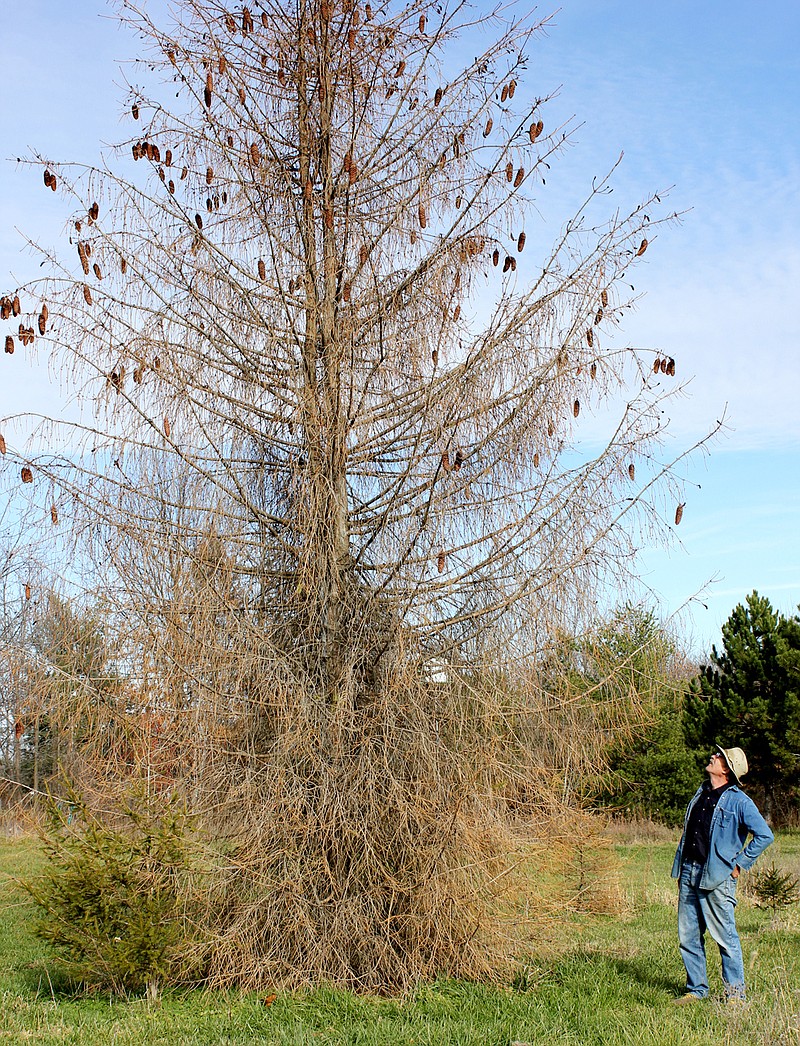For 23 years Coe's Tree Farm south of Fulton was a holiday tradition to many Callaway County families.
But age and drought have combined to put an abrupt end to Jamie Coe's six-acre Christmas tree farm on County Road 102 just south of Fulton.
"I have closed my tree farm. The drought really hit hard this summer. I am nearing retirement and I wanted to quit my tree farm operation anyway," Coe said.
Coe said all of the trees he planted during the last two years died. About 80 percent of the trees he planted three years ago also died. "Many of the other trees are stressed and even some of my really big trees died during the drought," Coe said.
Coe is a forestry consultant who started the tree farm has a hobby.
"I've been doing this for 23 years. It was so hot and dry this summer. I'm getting older and I have too many other irons in the fire now. It's hard to close the business because I have so many loyal customers who have been coming here for many years," Coe said.
As a self-employed forestry consultant, Coe has been hired by the Missouri Department of Conservation on timber improvement and tree planting projects. He also consults with landowners and loggers around the nation.
"I've been working with trees my entire life. I like trees. When we bought this place it was an old goat farm. It had a lot of wire fences forming paddocks. I took all of the fences and gates out and planted trees," Coe said.
His tree farm has become an annual Christmas tradition for many Callaway County residents.
"I didn't know the names of all of my customers. But I sure recognized them. I've watched their kids grow up. They came here every year. I knew what they wanted as soon as I saw them. Some of them wanted a six-foot pine and some wanted an eight-foot spruce, or a large 12-foot tree. Everybody is disappointed and it's hard to get the word out to everyone that we have closed," Coe said.
Some people came out early to mark a tree with a ribbon and their name and returned later to cut the tree a few days before Christmas. Coe loaned most of his customers a saw and they enjoyed walking around the farm to find and cut their own tree.
"When we advertised in the Fulton Sun several years ago, we had people lined up here on the day of the Fulton Christmas parade when everyone got into the mood of decorating for Christmas. During those years, I also made Christmas wreaths and decorative evergreen roping," Coe said.
"This was the best time of the year for Christmas tree farming. People came to me. I just gave them a saw and they did all of the work involved in cutting it down. It also was my payday for the work I put in during the year on the trees," Coe said.
Each year Coe worked to control insects, weeds and grasses that hampered the growth of the trees. He also battled the effects of deer damage and drought. He had been planting about 1,000 trees each year on his six-acre Christmas tree farm. But in recent years he hasn't planted many trees.
"Deer rubbed their antlers on the trees and damaged them. Rabbits ate the trees when they are small. It was a lot of work to shear and shape the trees each year," Coe said.
He specialized in growing Norway spruce, white pine and some scotch pines.
"Norway spruce were very popular and they also grew into big trees," Coe said.

